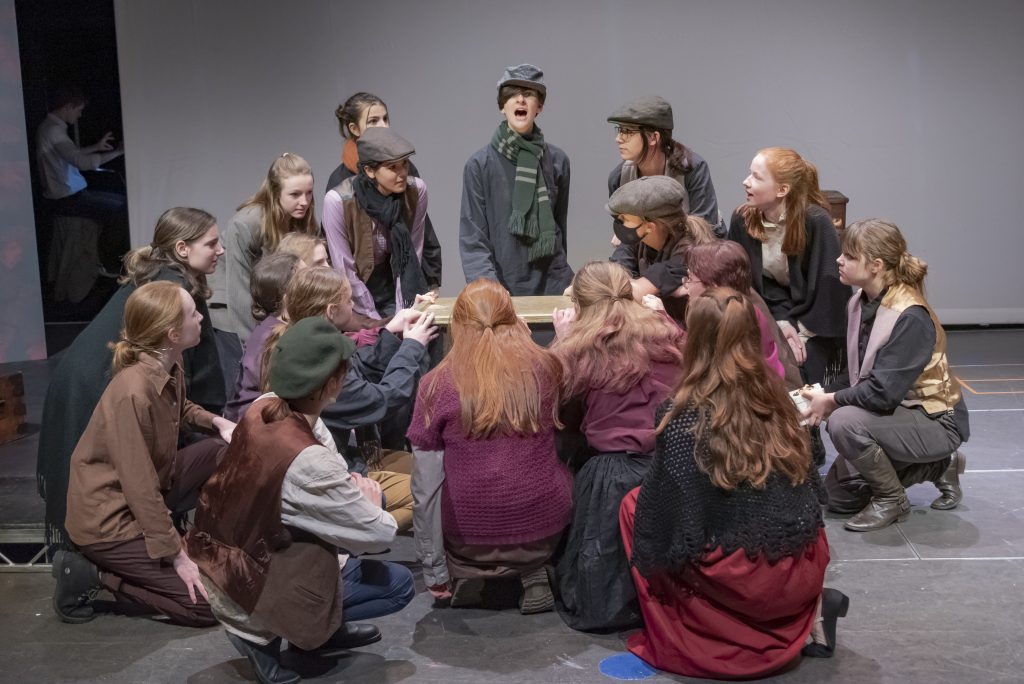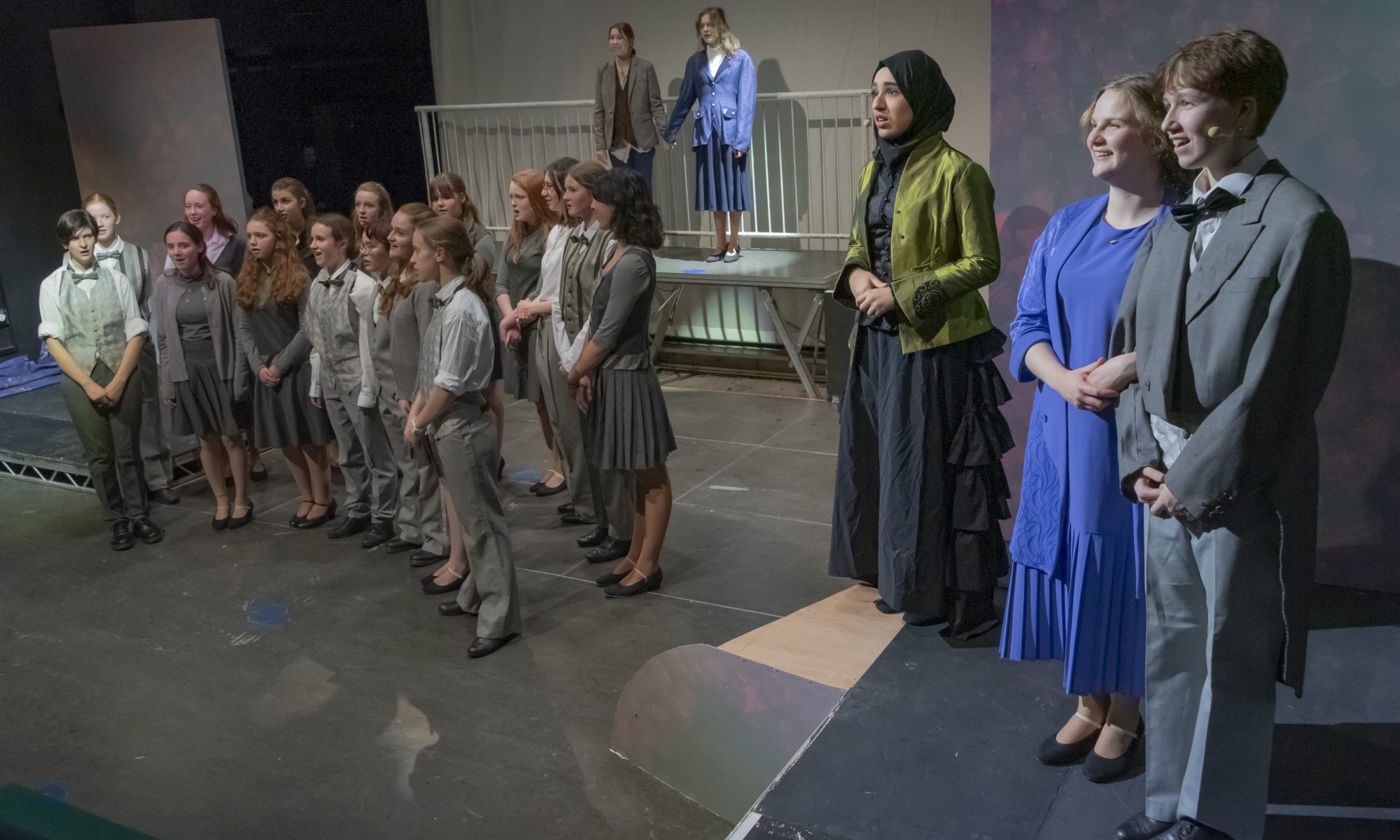WHS Director of Drama, Deb McDowell, reflects on how Drama can help students understand the importance of recognising your limitations and engaging in productive conflict to achieve the best outcomes
At this point of the year, as another cohort of students prepare to stride out into the world beyond WHS, I always ask them for their reflections on the best and also the most challenging things about the Drama experience. Then comes the frown, a sigh or two and a blowing out of lips, followed by thoughtful raised eyebrows, a gentle shaking of the head and a wry smile: ‘Devising! For both!’
The students are referring to the exam requirement at both GCSE and A level to create a 20-minute piece of Drama for performance in a group.
Experiencing the highs and lows of collaboration, in a high-stakes situation, usefully prepares Drama students for the world beyond school, where the value of well-honed, independent study skills – key for fantastic exam results – so often depreciates rapidly, while the need to negotiate and work with others becomes more crucial to success.
Let’s take a moment to consider some of the wonderful things collaboration offers, as evidenced by the powerful devised work created by Drama students each year:
- It provides an inclusive and productive experience for everyone.
- It teaches those who have confident voices to listen to those who are less extrovert, but also requires everyone to take responsibility for the work in progress, not just to sit back and let the ‘leaders’ take over.
- It provides a positive platform for problem-solving, as a result of experiencing a range of perspectives; learning that that by pooling knowledge, skills and expertise, a group response can be nuanced and powerful.

However, actually learning how to collaborate is not easy. Negotiating the unavoidable personal and practical challenges of working with others must not be underestimated. Commentators cite the need to trust and respect each other as the most important part of a group dynamic, but in discussion, WHS Drama students perceptively commented that this trust and respect cannot truly exist at the outset of any collaborative project, neither can it be forced, but will only grow over time in the most effective groups.
Together we agreed on the following.
First, we must understand that collaboration is more than simply ‘working with others to produce something’. There must be a shared intention, which in Drama is to produce high quality work that has social, cultural, moral value. There must also be specific agreed objectives, which for us means being precise about what we want the audience to think about or feel as a result of experiencing the performance.
Collaboration also requires agreed acceptance of the need for organisation, and a methodical way of working, even if the actual responsibility for active time management and group discipline falls to the individuals within the group best suited for these roles.
Furthermore, outstanding outcomes are only achieved a result of ambitious thinking and a determination to achieve the highest standards of execution, where the process must allow for risk-taking and also tolerance of missteps along the way, both in terms of the work in progress, but also in relation to group interaction.
Learning the personal qualities for collaboration
Many people have a deep-seated need to please, to be liked by others and to avoid conflict. Unfortunately – ironically perhaps – these traits undermine the very process of positive collaboration. Collaborations that aspire to be entirely harmonious soon find themselves mired in complacency, buoyed up by a cosy morale which ultimately leads to work that is clichéd, less sophisticated and ultimately unsatisfying.
What often lies behind the feelings of anger and frustration that can emerge is a perfectly reasonable anxiety about progress, or a sense of injustice borne from perceived unequal effort, or disappointment in the quality of input from others. We must accept that these feelings will bubble up when the stakes are high. It is really challenging to find a way to allow for them to be acknowledged properly as an integral part of the process, but when they are managed effectively, they can lead to collaboration of the highest order, which will make possible that fantastic sense of achievement and high morale experienced by so many of our students…in the end.
Positive collaboration forces us to understand our own limits; to recognise our own reluctance to be vulnerable; to be able to admit mistakes; and to see that challenges or failures along the way are not crises but a necessary part of the process.
And we have to truly respect others and evaluate their ideas openly and objectively. This is harder than it sounds, especially when we are often so used to measuring our progress relative to others, seeking out personal indications of approval to bolster our self-esteem, and becoming increasingly ‘set in our ways’ to feel more ‘in control’. Through collaboration we have an opportunity to learn from each other. The process should encourage us to see the value in asking for help, something far too many of us find very difficult (often perceiving this as an admission of weakness, when actually the opposite is true).
Working with others can allow us to become the kind of person we would want to work with ourselves – someone who can understand and respect others’ points of view, including across differences of background or expertise. And when faced with complex and demanding situations, we have to be able to admit when we need help. A confident, positive approach to collaboration makes all the difference. Listening to this year’s departing Drama cohort reflecting on why the experience of Devising embraced the worst of times but ultimately led to the best of times, I am happy that these students are striding out better equipped for life beyond WHS.

